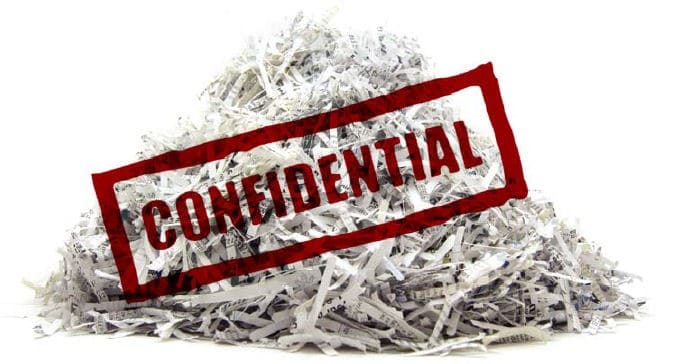Document Retention Guide
By Andrew DuPerrieu
June 12, 2017
At Blythe CPAs & Advisors, we regularly receive questions from our clients about document retention. What should I keep? What should I throw away? Below, we provide a useful guide to help you keep your file cabinet and hard drive neat and tidy.
Always remember to securely shred any documentation with personally identifiable information.
Documents which should be kept indefinitely in a secure location:
- Birth/death certificates and Social Security cards
- Marriage Licenses and Divorce Decrees
- Pension plan documents
- Copies of wills, trusts, health care proxies/living wills and powers of attorney (attorney/executor should have copies)
- Military discharge papers
- Copies of burial deeds and plots
- Safe-deposit box inventory
- Copies of all tax returns

Suggested timeline for retaining documents:
- Supporting documents for tax return (7 years)– This is the recommended minimum period of time to retain. Remember, tax return copies should remain on file forever.
- Investment records and statements (7 years) – These are needed for tax filing. Keep for at least 3 years. You may want to keep for the same amount of time as the supporting documents for tax returns.
- Credit card statements (45 days-7 years)– Keep up to seven years if it may be used for taxes, as proof of purchase or for insurance.
- Bank statements (1-3+ years)– Keep for 3 years or longer if you apply for Medicaid, or it pertains to taxes, a business expense, home improvement, mortgage payment or major purchase.
- Medical and dental records (1-5 years)– Keep for at least one year, maybe up to five to be safe. Retain information about prescriptions, specific medical histories, health insurance information and contact information for your physician.
- Utility and phone bills (1 month-1 year)– Shred them after you have paid them, unless they contain tax-deductible expenses—keep them for a year if they can be used for business deductions.
- Insurance policies (until closed)– Keep as long as the policies remain in force.
- Mortgages and other home documents (ownership + 6 years)– Mortgages, deeds and home improvement documents should be kept on file for the length of ownership, plus six years after selling the home.
- Appliance manuals and warranties (if owned)– Keep on file for the length of ownership.
- Vehicle titles and loan documents (if owned)– Keep on file for the length of ownership.
- Pay stubs (until end of year)– There is not a requirement for keeping pay stubs. Keep up to three months if you are applying for a loan. You may want to keep them for a year so you can compare against your W-2.

Andrew DuPerrieu
Financial Advisor
About the Author:
Andrew is a Financial Advisor with Blythe Investment Advisors. He is passionate about working alongside clients, providing custom and highly personalized services based on each clients unique needs and expectations. He is committed to coaching, supporting, and educating clients to achieve their financial goals.


